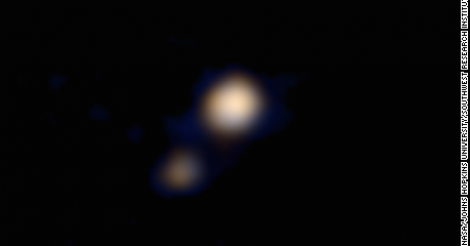NASA's New Horizons is around three months away from the dwarf planet Pluto, after traveling 3 billion miles. While the journey has been smooth sailing, it could still experience some possible hazards.
After over nine years of traveling through outer space, the spacecraft has transmitted its first color image of Pluto, according to CNN. The first picture released on Tuesday shows Pluto and Charon, its biggest moon.
NASA explains that future hazards to New Horizons could occur as the spacecraft travels deeper into Pluto's system. Jim Green, NASA's director of planetary science, says that NASA is traveling into "the unknown."
When NASA approved the New Horizons mission in 2001, astronomers were only familiar with Charon. Since then, four more moons have been discovered, according to Los Angeles Times: Hydra, Kerberos, Nix, and Styx.
Other moons might be orbiting Pluto. They would be too small for satellites on and around Earth to detect.
It is almost impossible for NASA's spacecraft to collide into one of Pluto's moons. However, it is a little more likely that it could crash into debris caused by a moon smashing into a different object.
The Pluto system is zipping through icy objects in the Kuiper Belt. If Pluto or Charon collided with such an object, its gravity would pull it into its orbit.
However, smaller moons have less gravity. As a result, moon dust from a collision could collect in rings around the dwarf planet's orbit.
Alan Stern, a chief New Horizons investigator, explains that moon dust the size of a "grain of rice" could cause major damage to the New Horizons. That is due to the ultra-fast speed of the spacecraft.
The chance of a damaging collision with moon dust is quite low. In fact, it is much less than one percent.
Still, NASA is taking specific steps such as using watching campaigns from May to June, to detect new moons and rings. The space agency has also planned two alternate routes in case the current one becomes dangerous.
Stern refers to New Horizons' approach to Pluto as "seven weeks of suspense."



























